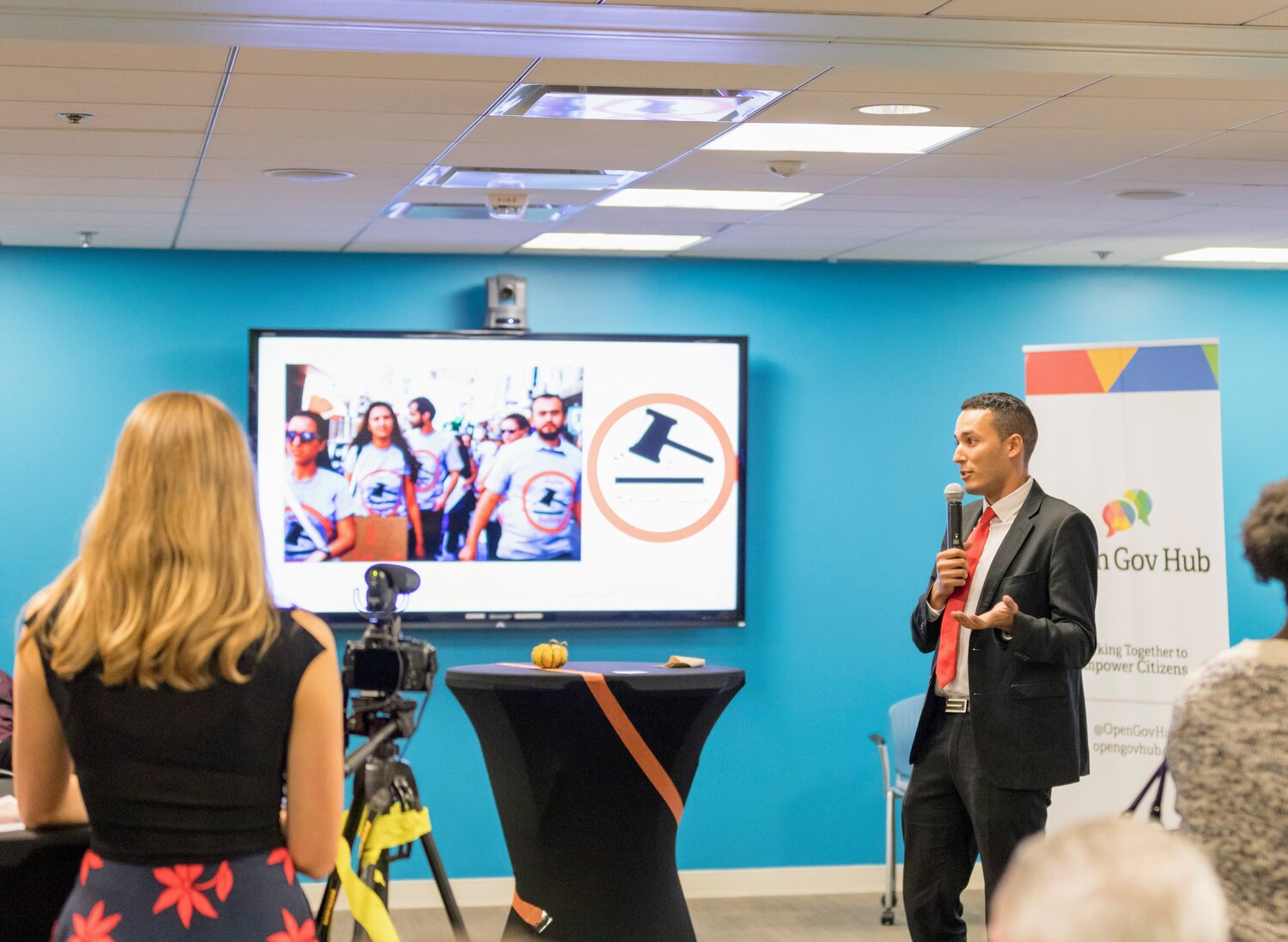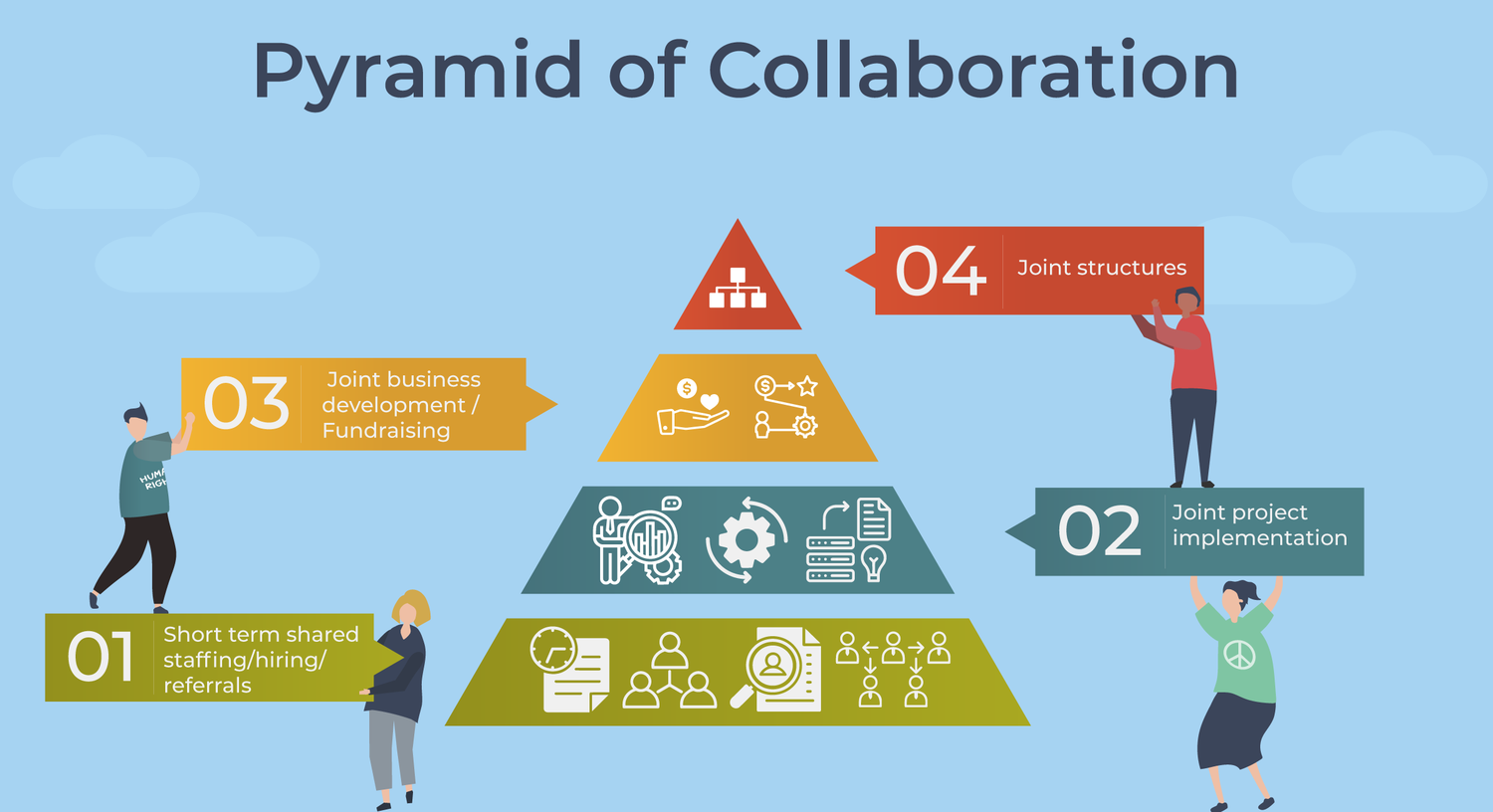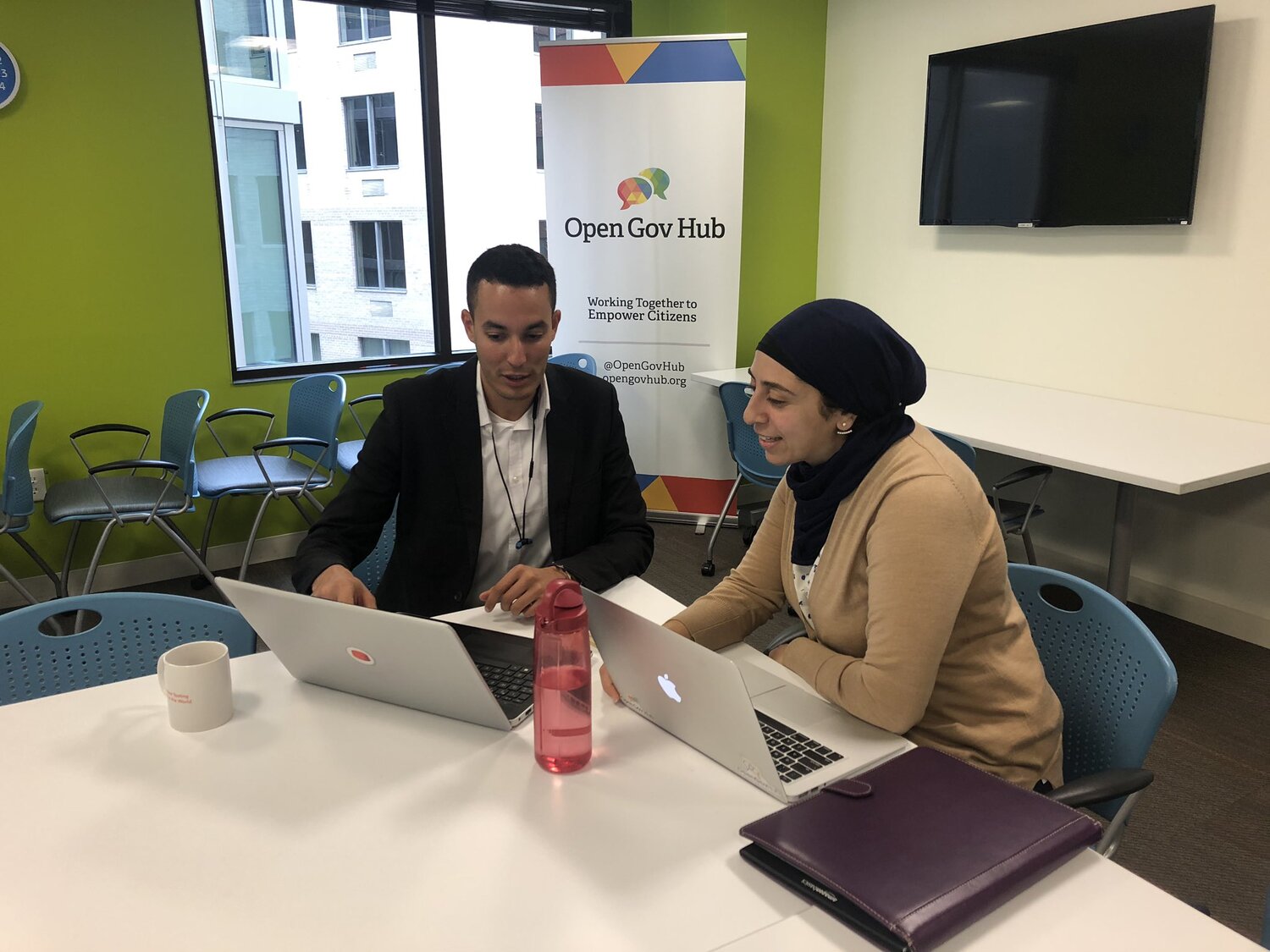Originally published on Open Gov Hub
As part of our 2019 Global Affiliate Hubs Program, we were delighted to organize a “staff swap learning exchange” this Fall with our affiliate hub El Space in Tunis, Tunisia.
Adnen Ben Hadj Yahia – co-founder and executive director of El Space – visited us for 1 week here in Washington, D.C. to teach us about their impressive work engaging young people in social innovation and contributing to Tunisia’s democratic development, and to learn from Open Gov Hub about our operations, members, programs, and impact.

What we did together
- One week packed with two-way training sessions (on topics like Monitoring and Evaluating Social Impact, Models of Collaboration, and more).Adnen gave a Brown Bag on Social Innovation Tools for Nonprofits
- Adnen gave a 5-minute Ignite Talk about Tunisia’s 2019 Elections and Democratic Journey
- Roundtable with Adnen and Middle East elections/democracy experts in DC about the historic 2019 Tunisian parliamentary and presidential elections
- Adnen met with several Open Gov Hub members – like Accountability Lab, IMAGO, Fourth Sector Group, and NDI – to explore opportunities for direct partnerships (which seem promising – like perhaps a collaboration with NDI to work with NDI’s Tunisia staff and partners to replicate El Space’s model in more rural, remote regions of Tunisia outside the capital city! And a few weeks after this program, a member of the Fourth Sector Group visited El Space in Tunis to continue to explore possible collaboration.)
What Open Gov Hub learned from El Space
- Adnen’s training sessions encouraged us to rethink our definition of financial sustainability for hubs. Open Gov Hub has long had 100% of our expenses covered by earned income so we have encouraged our affiliate hubs to do the same. But Adnen argued that if you have some stable and predictable grant funding that, this can also be part of a financially sustainable business model (their business model is 75% earned income, 25% grants). In fact, El Space often prioritizes pursuing small grants because these funds can be used as “risk capital” for experimentation and piloting new programs – compared to larger grants or earned income funding, which generally is less flexible and needs to be spent on exactly the original purpose or promised product/service.
- Based on their own business model, El Space’s work also encouraged us to think about expanding our training/consulting work here in DC – for example, by offering post-training, follow up support to the increasing number of international government delegations we host and train while they are on State Department-sponsored study visits to the US
- El Space showed us how innovative tools can help increase the frequency of resource-sharing interactions in our network. El Space showed us how they use Coinsense Community – “a global decentralized collaboration platform and change-maker network powered by blockchain based impact currencies.” El Space members and even volunteers and staff can earn currency/credit by giving their time and skills to help others, then “trade” that currency to receive specific services and help from others in the future. This is encouraging us to think about establishing a similar Time Banking system that formalizes the exchange of getting and giving help in our community.
- Finally, El Space taught us to think about engage local youth social entrepreneurs more! We were inspired by El Space’s strategic hackathons and incubators – often in partnership with government or international organizations – that leverage young people’s natural energy, creativity, and potential. Given our thematic focus, Open Gov Hub might run a civic tech or civic entrepreneurship incubator – whether a one time annual event like hackathon, or a more ongoing program.
What El Space learned from Open Gov Hub
- On Operations – we shared a variety of tools with El Space to help improve their daily operations, from workflows and checklists, and a Ladder of Engagement to help think about how to convert visitors to the space into active partners or members.
- On Human Resources – one of El Space’s challenges is staff retention, so we shared resources like Orientation and Hiring materials (ex: the Leadership Compass and Deloitte Business Chemistry Test), and brainstormed strategies for retaining junior staff
- On Monitoring, Evaluation and Learning – perhaps one of the greatest challenges for mature hubs that have been operating for more than 5 years like El Space and Open Gov Hub is understanding our collective impact. We shared tools and practices Open Gov Hub has developed in the last 2 years to enhance our own Monitoring and Evaluation Framework – like our all-important quarterly team learning reviews (regularly pausing from the daily hustle to reflect on what’s working and what isn’t!), and our “Evidence Table,” where we collect and categorize anecdotes of collaboration.
- A Values-Driven Strategy – we encouraged El Space to update their internal process e for deciding which new projects/partnerships to pursue by adding their Values as key criteria to directly inform this process
- On Visualizing Connections – we helped El Space build their own Social Network Map, using Kumu as we did recently to visualize our own member network
- On Financial Management – we also customized a Budgeting Excel tool to help El Space produce one comprehensive, organizational budget for the very first time (rather than all their finances being tied to specific project budgets)
- Democracy Parallels – finally, during the Ignite Talks, El Space learned about American democracy reform issues like gerrymandering and ranked choice voting, which have interesting parallels back in Tunisia (even if the terminology used to describe these phenomena is different)
Together, we combined our many years of experience running hubs to develop a new framework for thinking about how organizations like ours can help our partners gradually deeper their collaborations – moving from Information/Resource Sharing to -> Two-Way Learning to ultimately -> Shared Collective Impact.
This new tool is called our Pyramid of Collaboration.

Graphic Developed by El Space’s Designer, Thouraya Jetita.
Finally, one thing that surprised us during this visit was the parallel we found between an emotional community gathering we held in DC in the wake of the 2016 Elections, and an emotional community gathering El Space held this summer in Tunis right after a terrorist attack happened one block away from their space in downtown Tunis and Tunisia’s president also unexpectedly died. Both of these were really moments of crisis that we as community builders felt obliged to respond to by making and holding space for our members to collectively process together in times of uncertainty. This was a powerful reminder that sometimes unfortunate crises provide new openings for deepening meaningful community.
NEXT STEPS
We are eager to continue the collaboration between our two civic innovation hubs. El Space is gearing up to formally launch its “Open Gov Hub Tunisia” program soon, and we will soon develop mutual goals for how to best support one another in 2020!







